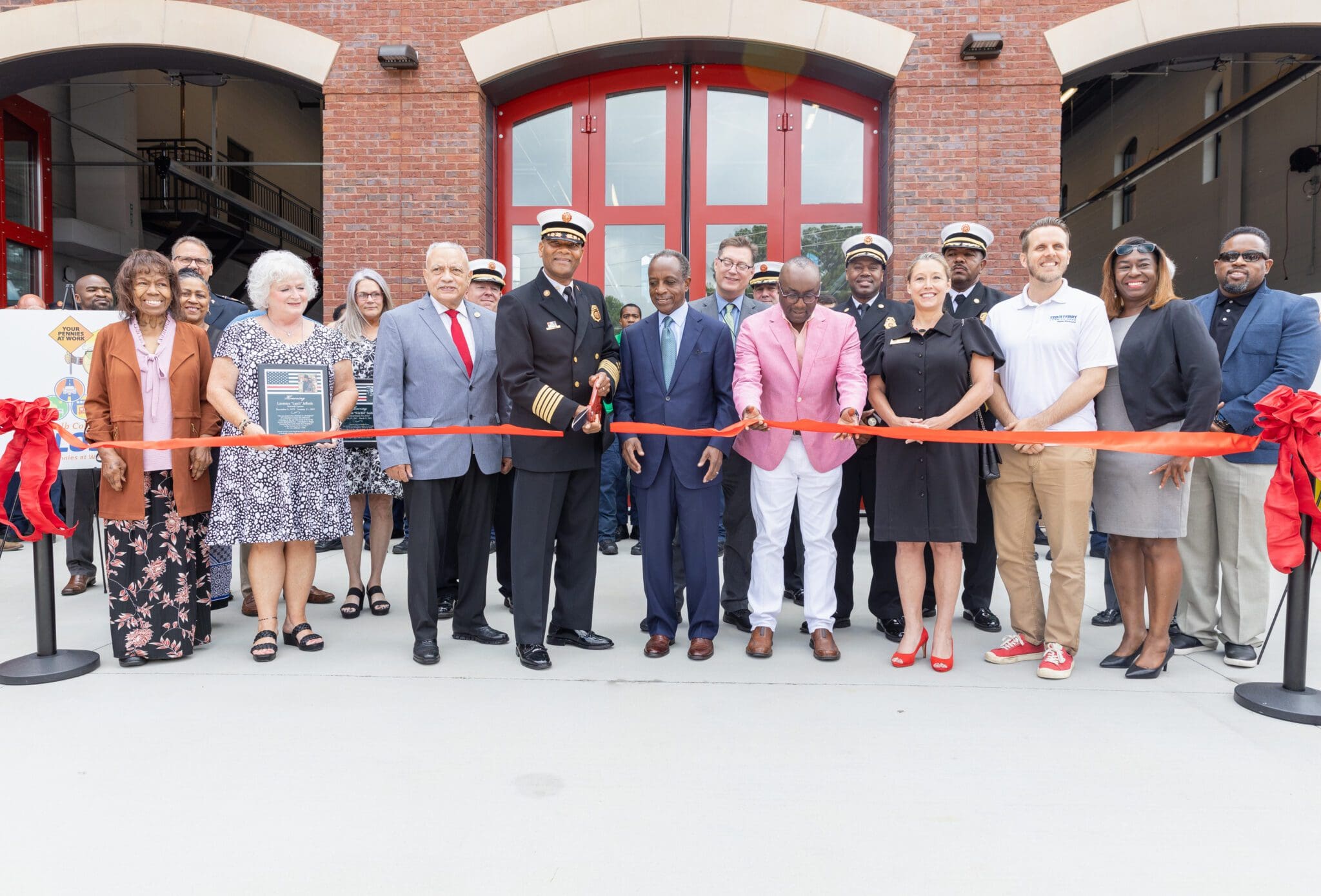The new fire station in Decatur, Ga., is one of five being constructed as part of a county-wide infrastructure improvement program.
In 2017, voters in DeKalb County, Ga., overwhelmingly approved a one-cent sales tax increase to fund infrastructure improvements. As the last county in the Atlanta metro area to implement a Special Purpose Local Option Sales Tax (SPLOST), residents were well aware of the positive impact these improvements could have on their communities. Expectations were high. “The public trusted us with this investment, and we had to deliver,” says Zach Williams, DeKalb County’s chief operating officer. “With our staff deep into the day-to-day operations of running the county, we knew we were going to need support to augment our staff and help us define and execute the projects we had identified.”
After conducting a qualification based selection process, county officials selected Atlas Technical Consultants, a national provider of program management and construction management services. “They were simply the best fit. We were aware of their reputation based on their work on other SPLOSTs throughout the state. And they’ve done an outstanding job,” Williams says.
Since 2018, Atlas has been supporting DeKalb County with a multidisciplinary team of designers, managers, schedulers, cost estimators, construction inspectors and administrative support personnel. The sixyear program is expected to result in $400 million in funding for projects such as safety and signal improvements, sidewalks and multi-use trails, updated public safety equipment and facilities, and capital improvements to parks, public clinics, senior centers and libraries. The largest investment is being directed toward resurfacing roadways throughout the county. “With four active paving contracts currently underway, the county is on pace to repave 100 miles of roadway this year. Prior to SPLOST, they only had the resources to see to 10 to 12 miles each year. It’s really been a success story, and all for just that extra penny,” says Chris Kingsbury, program manager for Atlas.
On June 12, more than 200 residents and firefighters attended the grand opening of a new re station in the southwest corner of the county– the first in almost a decade. The previous facility was constructed in 1953 and due for an overhaul, but it was not merely a brick-and-mortar improvement. “Chris and his team used these projects to not only modernize the structure but to modernize the way our firefighters carry out their duties. These are the people who are running into burning buildings and they deserve a clean, safe and welcoming environment. We’re also including community rooms in the new firehouses (a total of five will be built) to promote oneness with the community,” Williams says.
DeKalb County’s robust business community is also benefiting from the program. The 20% small business commitment included in the SPLOST agreement has been exceeded each year and mentorprotégé arrangements have been developed to provide valuable work experience to disadvantaged businesses.
For leaders in the county, it was important to use the program as a means of raising the profile of DeKalb, while also providing a higher quality of life for its residents. “It has given DeKalb County an opportunity to assert its place in the metro Atlanta area. We haven’t been able to invest in our infrastructure like other jurisdictions that have had SPLOSTs for decades. This has been a game-changer not only in how our county looks but also in giving our residents a reason to have faith in their government. And Atlas has been a great partner in making that happen,” Williams says.
Communication and transparency have been keys to the program’s success. Using the county’s GIS system, project progress is updated and made available to the public. Residents can simply go to the county’s website, click on a penny icon and then enter their address to see a list of improvements that have been made in their neighborhood. An email hotline was set up where issues can be reported and complaints lodged, but the inbox has remained largely empty. “I think we’ve only had to respond to around five issues, which is just a testament to how the work is being delivered,” says Williams.
SPLOST programs are unique to the state of Georgia, the first was created in 1985, and Atlas has become the go-to consultant for a majority of the programs in the Atlanta metro area, along with others throughout the state. Atlas also does similar CIP development and administration work for public agencies around the country. “I don’t think of Atlas as a consultant— they’re part of us,” Williams says “They have an office that’s closer to me than some of our department heads and we meet on a regular basis. You can definitely say they’re embedded in our staff, and that’s where we need them to be.”
Published by Engineering News-Record (ENR) – Environmental Management On July 1, 2023
